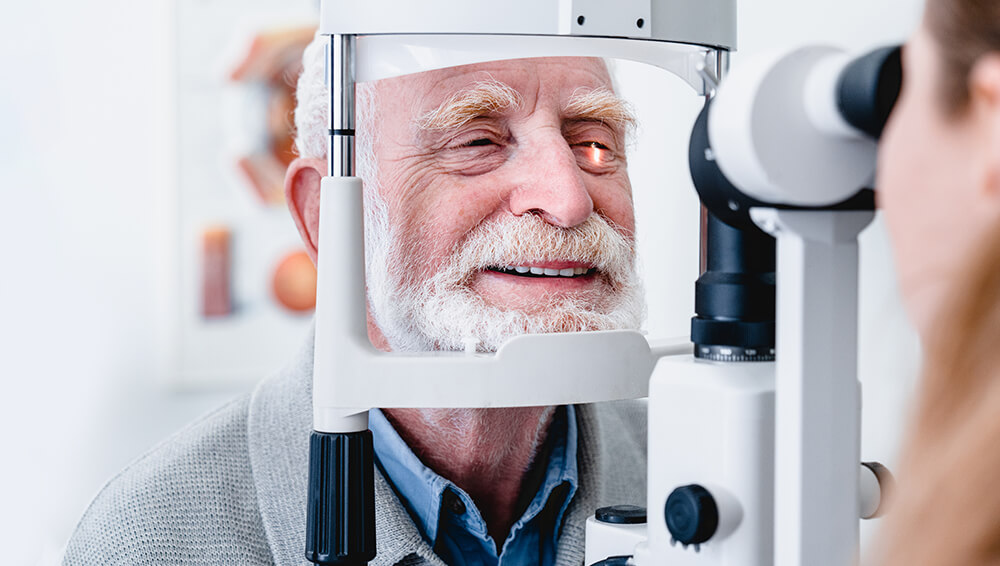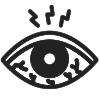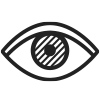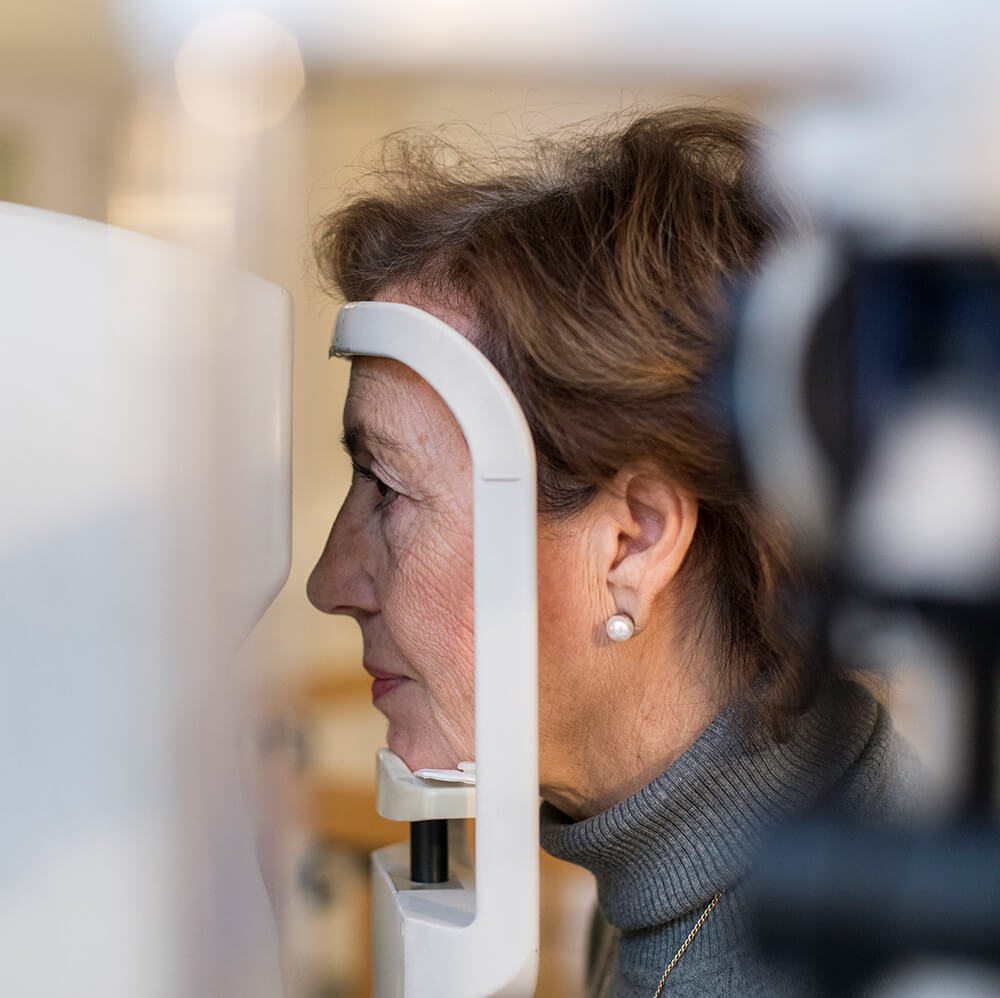Affordable eye exams for older adults
For patients age 60 and older, getting regular eye exams is very important - especially for those with known eye conditions, or other health concerns. Comprehensive eye exams for seniors are conducted by an optometrist (not a tech) at all Eye Boutique locations.
Request an appointment online, or call one of our stores to book your exam.

 Presbyopia
Presbyopia Dry eye
Dry eye Dimmed vision
Dimmed vision Age-related macular degeneration
Age-related macular degeneration Glaucoma
Glaucoma Cataracts
Cataracts Diabetic retinopathy
Diabetic retinopathy How often do seniors need eye exams?
How often do seniors need eye exams?
